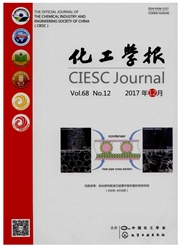

 中文摘要:
中文摘要:
采用水热炭化法将市政污泥与印染污泥在不同的水热温度下制备成生物炭,并着重分析了污泥生物炭的碳固定指标与水热温度的关系。结果表明,污泥泥质和水热温度对生物炭碳固定特性影响明显。市政污泥的水热炭化以脱羧为主,而印染污泥则以脱水为主。随着水热温度升高,两种生物炭中碳元素含量、炭产率和碳回收率均下降,但市政污泥生物炭中稳定碳的含量及其产率增加,稳定性提高,而印染污泥则呈现相反的变化趋势。这一结果指出,市政污泥生物炭的碳固定性能明显优于印染污泥,并且应进一步研究不同污泥泥质特征与炭化碳固定效果的关系。
 英文摘要:
英文摘要:
Biochar samples were prepared by hydrothermal carbonization(HTC)from municipal sewage sludge(MSS)and textile dyeing sludge(TDS)at different temperatures ranging from 150℃ to 300℃.This study focused on carbon fixation in biochar.The results showed that carbon fixation was significantly affected by sludge type and hydrothermal temperature.The HTC process of MSS was based on decarboxylation,while that of TDS was based on dehydration.Atomic ratios of biochar from MSS varied more greatly with the rise of hydrothermal temperature than those from TDS.Carbon recoveries in biochar from MSS were mainly influenced by biochar yield and decreased from 68.0% to 49.0% as the temperature increased,while those dropped from 100.0% to 76.8% for TDS due to the dominating effect of carbon content.Furthermore,the stable carbon content and its yield,recalcitrant C/total OC(RIc)of MSS biochars increased from 4.19% to 6.62%,from 123.6% to 161.2% and from 48.02% to 64.34% respectively with a rise of temperature,respectively.But the data of those indexes decreased from 3.80% to 1.86%,from 103.0% to 46.5% and from 54.26% to 47.04% respectively for TDS.Raman spectroscopy indicated that polycyclic aromatic hydrocarbon,fused aromatic ring and graphite-like microcrystalline structures led to high stability of MSS biochar.It was obvious that carbon fixation in biochar from municipal sewage sludge was better than that from textile dyeing sludge.
 同期刊论文项目
同期刊论文项目
 同项目期刊论文
同项目期刊论文
 期刊信息
期刊信息
